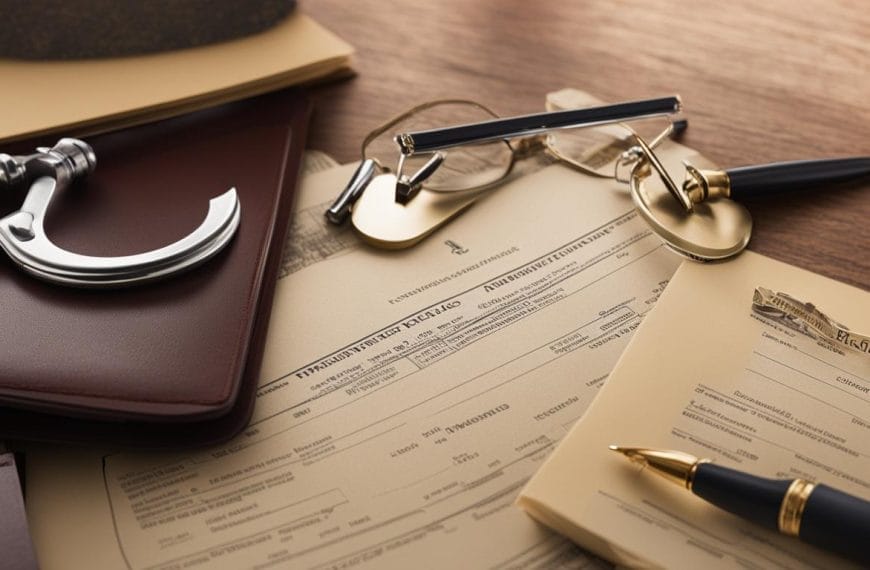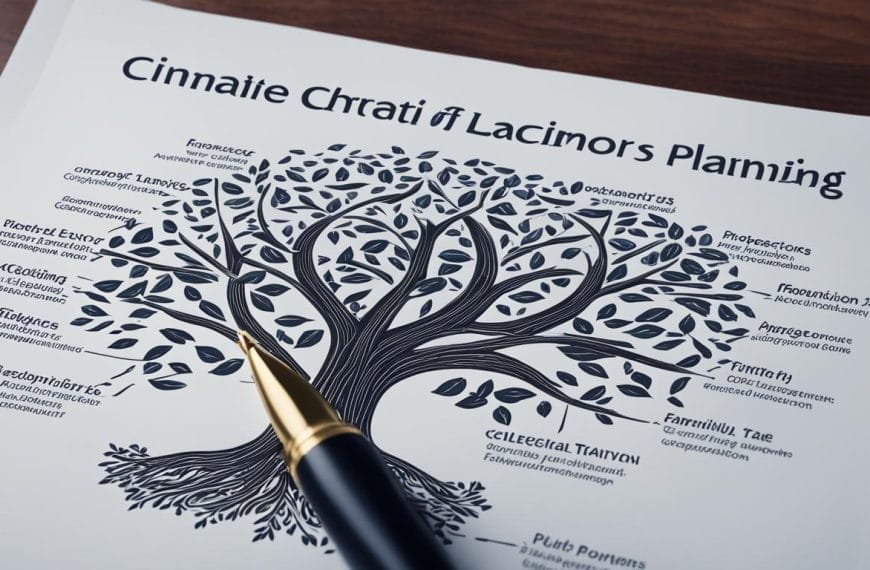When it comes to estate planning, preparation is key. Before heading to your estate planning meeting or consultation, make sure you have all the essential items in order. This will help ensure a smooth and efficient process, allowing your attorney to create an estate plan tailored to your needs and goals.
So, what are the must-have items for your estate planning meeting? Let’s dive in!
Beneficiaries List
When it comes to your estate plan, a beneficiaries list is a crucial document to bring to your estate planning meeting. This list not only identifies the individuals you want to inherit your assets but also outlines the specific assets they will receive. By including up-to-date contact information for each beneficiary, you ensure effective communication regarding their inheritance. Providing this comprehensive beneficiaries list allows your attorney to tailor your estate plan accordingly, ensuring your wishes are carried out.
The Importance of a Beneficiaries List
Creating a beneficiaries list is an essential part of the estate planning process. It provides a clear roadmap for distributing your assets among your loved ones. By designating beneficiaries, you can ensure that your assets pass to the right individuals according to your wishes, avoiding unnecessary disputes or complications. Additionally, having a beneficiaries list allows your attorney to determine the most tax-efficient and strategic distribution of your assets, maximizing the benefits for your loved ones.
Maintaining an Updated Beneficiaries List
It’s important to regularly review and update your beneficiaries list to reflect any changes in your life circumstances. Events such as marriages, divorces, births, or deaths may necessitate revisions to your list. By keeping your beneficiaries list current, you ensure that your estate plan accurately reflects your intentions and minimizes the potential for confusion or unintended consequences.
Consulting with an Estate Planning Attorney
An experienced estate planning attorney can guide you through the process of creating and updating your beneficiaries list. They can help you understand the legal implications and options available to you when designating beneficiaries. By working with an attorney, you can ensure that your beneficiaries list aligns with your overall estate planning goals and objectives.
Inheriting Assets Through Your Estate Plan
Creating a beneficiaries list is just the first step in establishing a comprehensive estate plan. Once you have identified your desired beneficiaries, it’s important to consult with an attorney to create the necessary legal documents, such as a will or trust, to ensure a smooth transfer of assets. Your beneficiaries will benefit from thoughtful estate planning, as it can help minimize taxes, streamline the probate process, and protect assets for future generations.
List of Executors
When it comes to estate planning, it’s crucial to have a clear list of executors who will be responsible for managing your estate in the future. Executors are individuals you trust to make important decisions regarding your assets and healthcare preferences if you become incapacitated or pass away.
Creating a list of potential executors ensures that your wishes are carried out and that your loved ones are taken care of according to your instructions. You can choose one or more executors depending on the complexity of your estate and the level of responsibility you want them to have.
It’s important to discuss your decision with the potential executors and make sure they are willing to take on this role. Open communication is essential to avoid any misunderstandings or conflicts in the future.
Furthermore, establishing a medical power of attorney is crucial to ensure that your healthcare preferences are honored if you become unable to express them yourself. A medical power of attorney allows you to designate someone you trust to make healthcare decisions on your behalf.
To help you understand the importance of selecting the right executors and establishing a medical power of attorney, here is a breakdown of their roles:
Executors:
An executor, also known as a personal representative, is responsible for managing your estate and implementing your estate plan after your passing. Their duties may include:
- Probating your will and validating its contents
- Gathering and managing your assets
- Distributing your assets to the designated beneficiaries
- Filing any necessary tax returns on behalf of the estate
- Protecting and preserving the estate’s assets
Medical Power of Attorney:
A medical power of attorney, also known as a healthcare proxy or surrogate, is an individual designated to make healthcare decisions on your behalf if you are unable to do so. Their responsibilities may include:
- Communicating your healthcare preferences to medical professionals
- Consenting to or refusing medical treatments
- Choosing healthcare providers and facilities
- Advocating for your best interests
Choosing the right executors and establishing a medical power of attorney ensures that your estate is managed according to your wishes and that your healthcare preferences are respected. Take the time to carefully consider who you trust with these important responsibilities.
| Key Points | Benefits |
|---|---|
| Clear list of executors | Ensure your estate is managed according to your wishes |
| Establish a medical power of attorney | Ensure your healthcare preferences are followed |
| Open communication with potential executors | Avoid conflicts and misunderstandings in the future |
Your Financial Records
When preparing for your estate planning meeting, it’s crucial to gather and provide your attorney with accurate and up-to-date financial records. These records play a key role in developing a comprehensive estate plan that aligns with your goals and desires.
While you don’t need to bring every financial document to the initial consultation, it’s important to include relevant information such as:
- Real estate deeds: Provide copies of the deeds to any real estate properties you own, showcasing your ownership and interests.
- Bank statements: Recent bank statements will enable your attorney to understand the current status of your accounts and assets.
- Investment accounts: Include statements or documentation related to any investment accounts you hold, as these assets may impact your estate plan.
- Business agreements: If you own or have an interest in a business, provide relevant agreements or contracts to help your attorney navigate the complexities of business ownership within your estate plan.
Additionally, if you possess any trademark, patent, or copyright registrations, it’s beneficial to include these certificates to demonstrate your intellectual property assets.
By providing these financial records, you enable your attorney to gain a comprehensive understanding of your financial position, which will guide their recommendations for an effective estate plan.
| Financial Records | Description |
|---|---|
| Real Estate Deeds | Copies of deeds to showcase ownership and interests in real estate properties. |
| Bank Statements | Recent statements that provide an overview of your financial accounts and assets. |
| Investment Accounts | Documentation related to investment accounts to assess their impact on your estate plan. |
| Business Agreements | Relevant contracts or agreements for businesses you own or have an interest in. |
| Trademark, Patent, and Copyright registrations | Certificates demonstrating ownership of intellectual property assets. |
Prenuptial Agreements, Divorce Agreements, and Other Important Contracts
If you have any prenuptial agreements, divorce agreements, or other important contracts that impact your estate plan, be sure to bring them to the meeting. Your attorney needs to understand and incorporate these legal agreements into your estate plan to ensure that your wishes are followed. It’s essential to provide copies of these documents for review during the consultation.
These agreements and contracts play a significant role in determining how your assets are distributed and managed after your passing. They might include clauses related to property division, alimony, child custody, and other key factors that can affect your estate plan. By sharing these important documents with your attorney, they can tailor your estate plan to align with the terms and provisions outlined in these agreements.
Why Prenuptial and Divorce Agreements Matter in Estate Planning
When creating an estate plan, it’s crucial to consider the potential impact of prenuptial agreements and divorce agreements. These legal documents outline the rights and obligations of each party involved and can influence the distribution of assets upon death.
Prenuptial agreements are contracts entered into by couples before marriage or civil partnerships. They specify how assets and debts will be divided in the event of a divorce or separation. While they may not directly impact an estate plan, they can provide clarity on asset ownership, debt responsibilities, and potential financial support obligations. This information can be invaluable when crafting an effective estate plan that ensures your wishes are carried out.
Divorce agreements or settlements indicate the terms and conditions agreed upon by divorcing spouses. They commonly cover asset division, spousal support, child custody, and child support arrangements. These agreements can significantly impact your estate planning decisions, especially if you have children from a previous marriage or relationship. It’s essential to discuss these agreements with your attorney to ensure that your estate plan aligns with your intentions.
In addition to prenuptial and divorce agreements, other contracts like business agreements, partnership agreements, and loan agreements may also affect your estate plan. By bringing these documents to your estate planning meeting, you provide your attorney with a comprehensive understanding of your legal obligations and assets, enabling them to craft a personalized estate plan that addresses all relevant considerations.
Maximizing the Benefits of Prenuptial Agreements, Divorce Agreements, and Contractual Clauses
When discussing prenuptial agreements, divorce agreements, and other contractual clauses with your attorney, it’s essential to review their implications thoroughly. Consider the following points:
- Ensure the agreements are up to date and legally enforceable.
- Discuss any amendments or modifications that may be necessary.
- Clarify the impact of the agreements on asset distribution and financial matters in your estate plan.
- Examine provisions related to beneficiary designations, life insurance policies, and retirement accounts.
- Consider how these agreements may affect your overall estate planning goals and strategies.
By incorporating these important agreements and contracts into your estate plan, you can rest assured that your wishes will be honored and your assets will be distributed as intended. Your attorney will be able to provide expert guidance and ensure that your estate plan reflects the provisions outlined in these legal documents.
A List of Your Questions
When it comes to estate planning, it’s crucial to have a clear understanding of every aspect of the process. That’s why it’s essential to come prepared with a list of questions for your estate planning lawyer. This will ensure that you receive the necessary clarification and guidance to make informed estate planning decisions. Don’t hesitate to ask about anything you don’t understand or need further explanation on.
Here are some common questions to consider asking your estate planning lawyer:
- What are the different types of estate planning documents and which ones do I need?
- What are the tax implications of my estate plan?
- Can you provide more information about your background and experience in estate planning?
- How do I determine the appropriate fees for my estate planning?
These are just a few examples to get you started. Feel free to add any other questions you may have that are specific to your situation. Your estate planning lawyer is there to assist you and address your concerns, ensuring that you are confident in your estate planning decisions.
Having a list of questions ready will contribute to a more productive and focused estate planning meeting. It’s a valuable opportunity to gain clarity and peace of mind regarding your estate plan. So, take the time to compile your questions and arrive at the meeting well-prepared. With the guidance of your estate planning lawyer, you’ll be able to make informed decisions that align with your goals and secure the future of your estate.
Other Considerations
In addition to the essential items, there are other factors to consider when preparing for your estate planning meeting. It’s important to inform your attorney if any of your beneficiaries have special needs, receive means-tested government assistance, are facing debt-related problems, or have any other unique circumstances. Providing this information will enable your attorney to tailor your estate plan to address these specific considerations.
Moreover, you may want to consider utilizing estate planning software or services like Trustworthy to keep your documents organized and easily accessible. This can help you stay on top of important deadlines, securely store your estate planning documents, and ensure that your wishes are easily retrievable when needed.
Benefits of Using Trustworthy Software
If you’re looking for a reliable and user-friendly estate planning software, Trustworthy is a great option. Here are some of the key benefits it offers:
- Secure document storage: Trustworthy allows you to securely store and access your estate planning documents in one centralized location, providing peace of mind that your sensitive information is protected.
- Easy organization: The software enables you to organize your documents by category, making it simple to locate and update important files whenever necessary.
- Reminders and alerts: Trustworthy sends you reminders and alerts for upcoming deadlines or when it’s time to review and update your estate plan, ensuring that you stay proactive in maintaining an effective plan.
- Collaboration capabilities: If you’re working with multiple individuals or advisors on your estate plan, Trustworthy allows for seamless collaboration and sharing of documents, making the process more efficient and collaborative.
- User-friendly interface: Trustworthy features an intuitive and user-friendly interface, making it easy for even the tech-averse to navigate and utilize the software effectively.
By considering the unique circumstances of your beneficiaries and utilizing reliable software like Trustworthy, you can enhance the effectiveness and efficiency of your estate planning process.
Conclusion
Proper preparation is key to a successful estate planning meeting. By taking the time to gather the necessary documents and information, you can ensure an efficient and productive consultation with your attorney. This will enable them to create a secure estate planning document that aligns with your unique needs and goals.
Remember to bring essential items such as a beneficiaries list, a list of executors, and your financial records to provide your attorney with a comprehensive understanding of your assets. Don’t forget to include any prenuptial agreements, divorce agreements, or other important contracts that may affect your estate plan. These documents will help your attorney make well-informed decisions and ensure that your wishes are followed.
In addition to the necessary documents, it’s important to come prepared with a list of questions for your attorney. This will help you gain clarity on any aspects of the estate planning process that you may not fully understand. Utilizing technology solutions like Trustworthy can also provide a secure platform to store and access your estate planning documents, giving you peace of mind knowing that your important information is protected.
By taking these steps, you can ensure an efficient estate planning meeting that maximizes the value of your time with your attorney. With proper preparation, you can establish a solid foundation for your estate plan and confidently make decisions that will protect your assets and the future of your loved ones.













